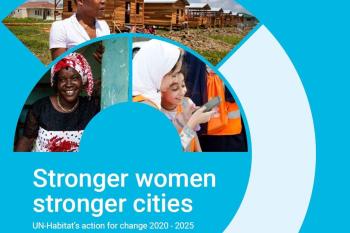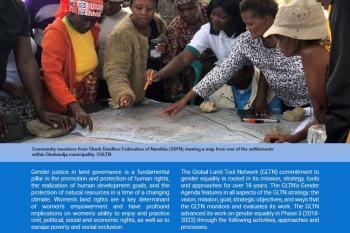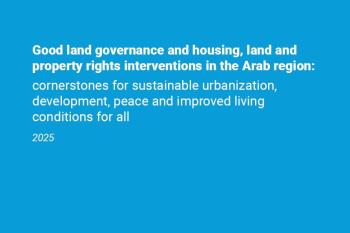
Read More
Stronger women stronger cities: UN-Habitat’s action for change 2020 – 2025
This publication presents a summary of UN-Habitat’s gender equality impact over the past five years, in line with the Beijing reporting cycle.
"Consequences of evicting widows", NRC´s recent brief on the Central African Republic shows the difficulties widows face when they return to their homes after the conflict. The brief highlights the “traditional” practice whereby the family of a deceased husband evicts his widow, and in some cases also their children, from the marital home. The widow is expected to return to live with her parents or other remaining family.
NRC´s research found that even though the law does not discriminate against women’s inheritance rights, in practice these are difficult for women to enforce. Most importantly, the ability of wife to inherit marital property depends on being in a formal or legal marriage. The vast majority of women “90 per cent” are thought to be either in a traditional marriage or cohabiting, which means they have very little legal protection and limited recourse when evicted. This takes on even greater significance after the conflict when many husbands have been killed or are missing “and having a home is essential for women to rebuild their lives and take care of their family”.

This publication presents a summary of UN-Habitat’s gender equality impact over the past five years, in line with the Beijing reporting cycle.

GLTN’s institutional commitment to gender equality and secure land rights for women and girls has been at the core of its work since inception in 2006.

The booklet ‘Good land governance and housing, land and property rights interventions in the Arab region’ collects the key recent land, housing and property rights-related projects and initiatives